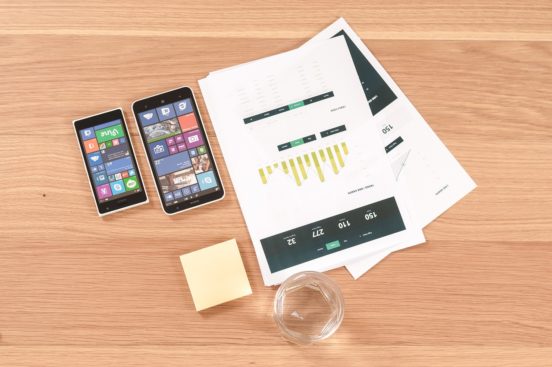
Not only this, but the speed of web page also has an effect on SEO. With page ranking algorithm Google takes the user experience as an important consideration. Since slow loading website degrades the user experience, this can damage your SEO rankings.
In order to deliver best possible online user experience. We will discuss some of the tips on how to optimize the performance of your WordPress website. Whether it is the page website, slow plugins, or some other issue, read these tips to boost your web page speed and improve your overall website performance.
-
Run a Website Speed Diagnosis
First, you need to run a speed test. There are various tools to find out the speed like Pingdom, Google PageSpeed Insights to name a few. Here you can also find the reasons for slow web page loading time.
After you enter your WordPress website’s URL link, you will be sent an email containing information about custom analysis regarding how fast your website loads and provides specific recommendations for speeding it up.
You can also schedule the recurring tests to find out how changes to your WordPress website can impact the speed of your website.
-
Configure a CDN
No matter what is the current user’s location, your content should be delivered at a blazing fast speed. Sometimes this thing is not always feasible if your website is not on an infrastructure which contains the data centers in other parts of the world. Distance can sometimes mean lag in the content delivery, which is where a CDN(Content Delivery Network) comes in handy.
A CDN can provide faster web page loading time because when it is configured, your website is going to make the use of optimized server which is closer to your website visitor. The data center will store all the static files and content and then deliver to the users based on their location. This can help in reducing external HTTP requests because the static content is ready to go instead of requesting so many HTTP at once. CDN’s will also act as a firewall and prevent unwanted visitors to your site. This spyware guide is another useful tool to review.
Choosing a CDN totally depends on the popularity and requirements of your website. Some of the most popular CacheFly, Cloudflare etc.
-
Splitting Excessive Comments
If your content is getting a lot of comments, it might be the reason behind your web page lagging. Breaking the comments section into pages is a good idea to cut off the time it takes for it load.
To convert the comments section into pages, simply go to Settings and then click on Discussions and then choose the number of comments you want per page. It would help in memory consumption and boost the web page loading time for websites and pages with lots of comments.
-
Remove Unused Media or Themes or Plugins
Unless you are preferring minimalist style, over time, we all tend to eliminate clutters from our website. All the unnecessary things should be cleaned out every now and then. The same thing goes for your WordPress website.
- Removing Unused Media
You can use the WordPress plugin like Media Cleaner to clean of unused media or you can do it manually. To remove the unused media manually, simply click on Media and then go to Library and click on the Unattached option.
You will then see all of the media files which are not being used on your website. You can also delete the unused files to free up space.
- Remove Unused Themes and Plugins
Not only do unused plugins and themes have security vulnerabilities, but they can also degrade your WordPress website performance.
To eliminate these cobwebs, simply find out which themes and plugins are absolutely necessary. Moreover, you can at least deactivate it to cut down the amount of source code your website needs to load.
-
Minify HTML, CSS, Javascript
With the help of minification, the backend of your WordPress website can be optimized to a lean mean machine. This technique works by reducing the file size of HTML, CSS, and Javascript files. They work on to remove unnecessary characters like line breaks, spaces, and comments. This results in the reduced amount of data transfer required so that files can run quickly and your web pages load quickly.
There is a number of plugins available to minify code. Some of the good examples are CSS Compressor, Autoptimize, etc.
-
Web Host
Most users in order to save money, opt for cheap web hosts. There are many hosting companies available in the market who offers hosting at attractive prices. But you should perform proper research, read genuine reviews in order to find the best provider for your website.
So do proper research before finalizing your web host.
-
Cleaning Up Your Database
If the WordPress database is left unchecked, then it will start to accumulate clutters over a period of time. To make it clean, you may want to clean up any leftover tables from uninstalled plugins and remove all the overhead. Cleaning up your WordPress website database can be performed manually using phpMyAdmin, although it can be damaging and tricky if you don’t know what you are doing.
If you are a technical expert, installing a plugin to perform this task is a safe way to go. It gets rid of various things like spam comments, old revisions, MySQL queries, and much more.
-
Upgrade to PHP 7
Moving from PHP 5 to PHP 7 can make a huge impact on website speed. In fact, PHP 7 can easily handle uncached hits three times faster than on PHP 5.5 can result in 50 % improvements in memory consumption.
Before moving to PHP 7, do know that it is not backward compatible. Meaning that once you upgrade it, you cannot go back to previous PHP versions.
Conclusion
Once you have implemented all these solutions, you will get the optimized performance from your WordPress website and faster web page loading time. Therefore, follow these solutions carefully otherwise hire the WordPress expert to get your work done. Moreover, you should install these plugins to check the speed test results of your website.
Author Bio: Catherrine Garcia is an experienced web developer, currently working as a freelance web developer at WPCodingDev. She enjoys her writing and always on the lookout for high quality blogs.











